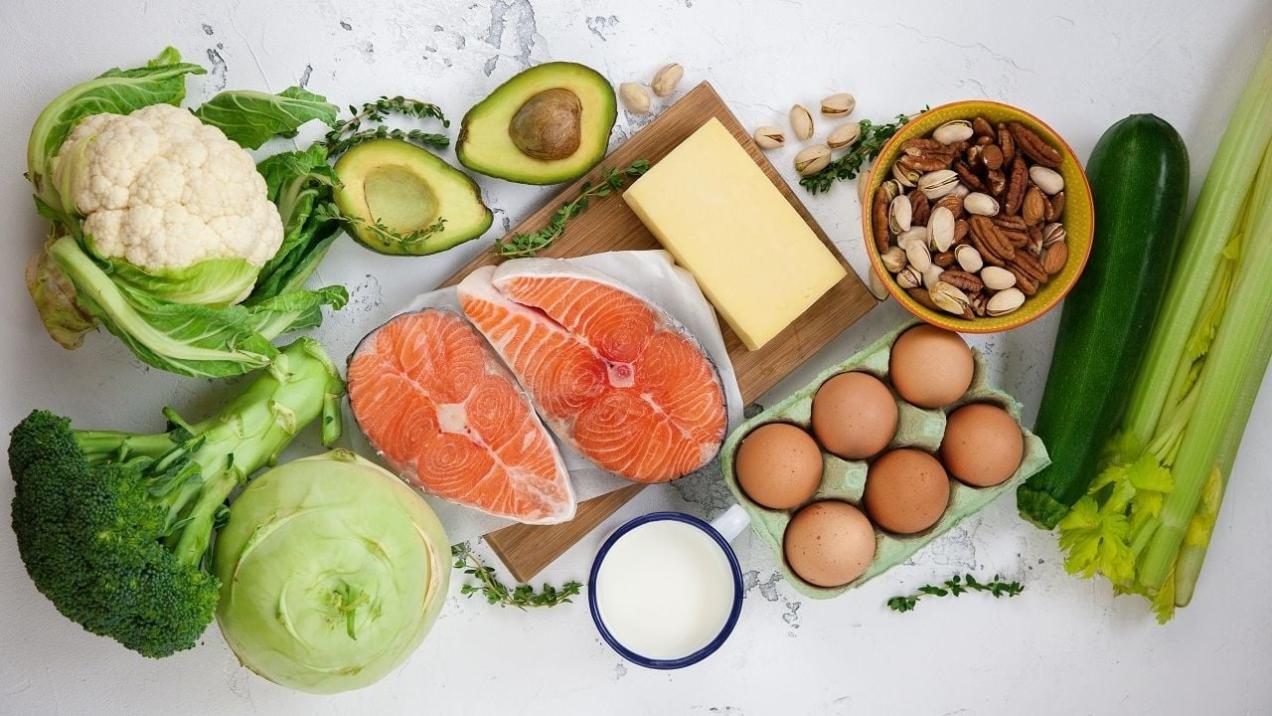What Foods Can I Eat on a Keto Diet?
The ketogenic diet (keto diet) is a low-carbohydrate, high-fat diet that has gained popularity for its potential health benefits, including weight loss, improved blood sugar control, and reduced risk of chronic diseases.

Ketosis: The Key To The Keto Diet
The keto diet aims to induce a metabolic state called ketosis, where the body shifts its primary fuel source from carbohydrates to fats. When carbohydrate intake is restricted, the liver converts stored fats into ketones, which are then used for energy by the brain and other organs.
Understanding Macronutrients
The keto diet emphasizes a specific macronutrient ratio:
- Carbohydrates: Limited to 5-10% of total calories
- Protein: Moderate intake, typically around 20-30% of total calories
- Fats: High intake, making up 60-75% of total calories
Limiting carbohydrates forces the body to rely on fats for energy, promoting ketosis. Increasing healthy fat intake provides satiety and helps maintain energy levels.
Food Groups To Include
Healthy Fats:
- Avocado: Rich in monounsaturated fats and essential nutrients
- Olive Oil: A heart-healthy fat source with antioxidant properties
- Coconut Oil: Contains medium-chain triglycerides (MCTs) that are easily absorbed and burned for energy
- Nuts and Seeds: Good sources of healthy fats, protein, and fiber
Protein Sources:
- Meat: Lean cuts of beef, pork, lamb, and poultry
- Poultry: Chicken, turkey, and duck
- Fish: Fatty fish like salmon, tuna, and mackerel
- Eggs: Whole eggs are a nutrient-rich protein source
- Dairy Products: Choose full-fat options like cheese, yogurt, and butter
- Plant-Based Proteins: Tofu, tempeh, lentils, and beans
Non-Starchy Vegetables:
- Leafy Greens: Spinach, kale, lettuce, and arugula
- Broccoli: A cruciferous vegetable rich in fiber and antioxidants
- Cauliflower: Versatile and low in carbohydrates
- Zucchini: A mild-flavored vegetable that can be used in various dishes
- Bell Peppers: Colorful and packed with vitamins and minerals
Foods To Avoid Or Limit
Sugary Foods:
- Candy: High in sugar and provides no nutritional value
- Soda: Sugary drinks contribute to weight gain and increased risk of chronic diseases
- Fruit Juice: Contains high amounts of sugar and lacks fiber
- Processed Snacks: Often high in carbohydrates, unhealthy fats, and added sugar
Starchy Foods:
- Bread: Made from refined flour and high in carbohydrates
- Pasta: A refined carbohydrate that can quickly break ketosis
- Rice: A high-carbohydrate grain that is not keto-friendly
- Potatoes: Starchy vegetables that should be limited on a keto diet
- Corn: A high-carbohydrate vegetable that can disrupt ketosis
High-Sugar Fruits:
- Bananas: High in natural sugars and carbohydrates
- Grapes: Contain high amounts of sugar and should be consumed in moderation
- Mangoes: Tropical fruit with high sugar content
- Pineapples: Sweet fruit with a high glycemic index
Tips For Following A Keto Diet
Meal Planning:
- Plan meals and snacks in advance to ensure you have keto-friendly options available.
- Create a meal plan that meets your individual needs and preferences.
Hydration:
- Stay hydrated by drinking plenty of water throughout the day.
- Avoid sugary beverages like soda and fruit juice.
Monitoring Ketone Levels:
- Use ketone testing to monitor the effectiveness of your keto diet.
- Test ketone levels regularly to ensure you are in ketosis.

Following a well-formulated keto diet can provide various health benefits. By understanding the macronutrient ratios and choosing the right foods, you can achieve ketosis and reap the potential benefits of this diet. However, it's important to consult with a healthcare professional before starting a keto diet to ensure it is safe and appropriate for you.
YesNo

Leave a Reply